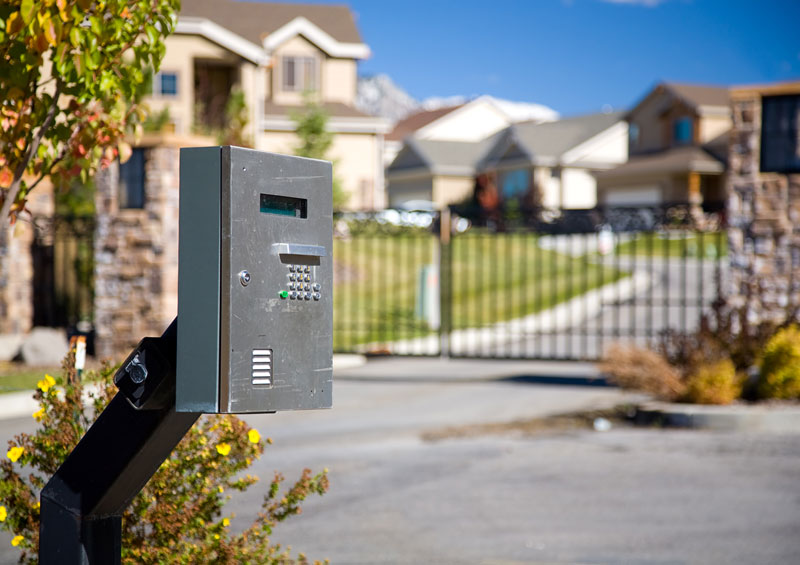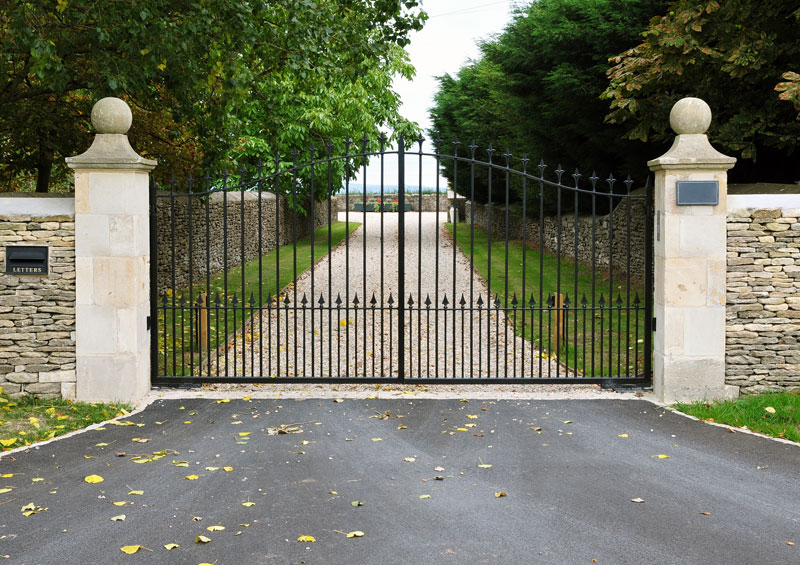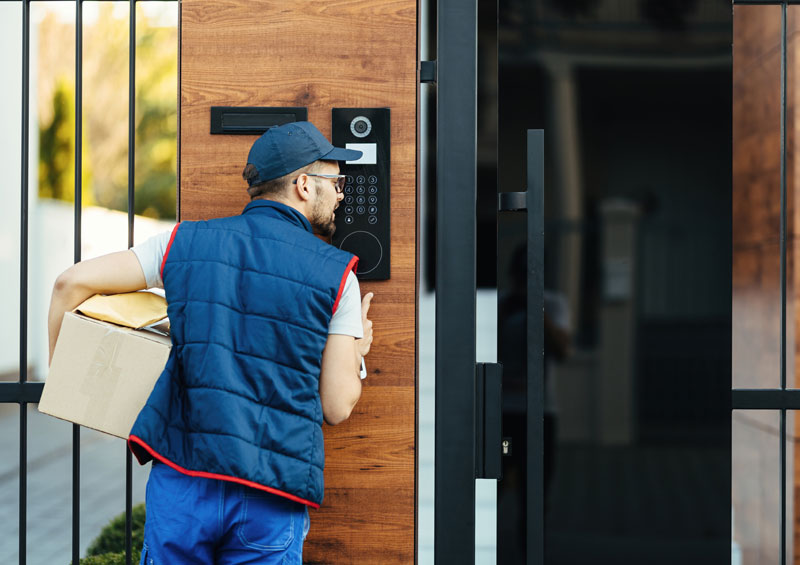
Gated communities are a desirable location for residents seeking a safe, secure and secluded environment to live.
Controlled entry to the site is an attractive prospect – with security professionals managing visitors, tradesmen, services with planned access or escorted guest services, depending on the community’s requirements. High-profile and high-wealth residents often embrace the privacy and exclusivity which offers a respite from the outside world.
The challenge with gated community security is that, alongside the many benefits, these communities are also seen as wealthy and high-value - providing an attractive proposition to criminals. The aura of safety can be a perception rather than reality, as the presence and appeal of gated communities can be a magnet for crime by opportunistic thieves.
To avoid targeted crimes against residents and their property, it’s essential that the security risks are thoroughly analysed, and effective security systems put in place.
For professional support with your gated community security, give us a call on +44 (0)1332 948320.

Considerations for effective gated community security:
1. What are the main risks if security is breached?
It's a mistake to put security measures in place without first understanding the community’s risks and what the outcomes of a security breach could be.
Due to prominent residents and higher-value properties, the risks of crime in a gated community can often be higher than in the surrounding areas, with the most serious risk on a gated community being the threat to life.
Criminals can have the perception that due to the wealth and status of the community, the rewards will be worth the risk. The community’s security is the first point of contact where this risk can be managed and averted.
An expert risk assessment at this stage is a significant advantage, ensuring a thorough analysis of potential risks and suggesting measures to counteract these. We’re experienced with providing these assessments for clients – get in touch on +44 (0)1332 948320 to discuss how we can help.
2. How should visitors be verified?
Preventing unauthorised visitors from getting onto the site is a vital part of keeping the community safe. Crimes and unwanted incidents are less likely to happen with fewer unauthorised people and vehicles on site.
Verifying who should (or shouldn't) be given access requires balancing the need for security with the desire for residents to move freely in and out of their community.
Lower-risk communities may use ANPR, key fobs or key codes at the gates, whilst higher-risk communities are likely to need security officers to verify visitors individually.

3. How much traffic needs regular access in and out of the community?
Pre-planning any access to the community is the key to controlling unwanted visitors. This can be challenging – for example with workers arriving for major construction projects as other staff arrive and residents are leaving for the day.
Only with an experienced team and tight processes can risks be mitigated in a manner that keeps residents safe whilst daily requirements continue running smoothly with no delays to the day.
4. How secure is the outer perimeter of the community?
The outer perimeter, whether that’s a wall or fencing, is the first barrier to criminals. How many access points are there - both for vehicles and pedestrians - and how are these monitored? Are fences secure, or are there weak points where people could gain access unseen?
There's little point in putting robust measures on the main gate, whilst leaving unmonitored access available elsewhere in the community. Every potential point of access needs to be taken into consideration.
5. What's the background of the community's residents?
Understanding the backgrounds and individual risk level of residents is helpful when analysing the risk to the community as a whole. Are high-wealth individuals a target for robbery or threats? Do current or past careers put residents at risk? Are there political factors which could see individuals targeted?
Due to the privacy desired by many residents, property managers may not always have this information. But any knowledge of individual risk levels can help ensure appropriate security measures are in place.

6. What visible deterrents should be used?
Highly visible security measures - such as mobile patrols in marked vehicles, uniformed security officers on duty and clear signs noting CCTV coverage - can not only serve as a visual deterrent to criminals, but also help to reassure residents that their safety is being taken seriously.
A clearly visible security presence makes opportunistic crime appear much riskier, reducing the appeal to potential thieves looking for an easy target.
7. What security will be in place overnight and at weekends?
Having fewer security staff on site during quiet periods can provide an opportunity for criminals to carry out crime undetected.
What’s the minimum level of security to continue effectively guarding against risks? Continued mobile patrols may be required to monitor the site, alongside officers available to monitor CCTV and respond to incidents, alarms or residents’ security concerns.
8. How will relief staff know what to do?
Security mistakes can happen when relief officers don't know what to do in a situation. Clearly documented processes are essential so that staff covering holidays and sickness can quickly get up to speed with the requirements of the community.
If you're using an external security company, there should already be a process for this - but it's always worth checking what this is.
9. What roles are the security team expected to cover - and is there capacity?
The risk assessment may highlight a combination of security issues which need to be managed. From responding to security concerns from residents; monitoring entry through gates; undertaking regular patrols and keeping records up to date – the number of tasks can quickly add up.
Is there the capacity within your current team to fulfil all these responsibilities effectively? For example, if vehicles aren't allowed access until a set time, the security officer at the main gate is likely too busy at that time to also be responsible for responding to incidents and concerns.

10. How can security be increased within the community?
Whilst security teams can do a lot to reduce crime within a community, effective gated community security also relies on residents taking appropriate security measures to avoid risks.
Homeowner precautions - such as leaving access gates to properties closed when not in use, locking doors and windows and reducing valuables on display - can all help increase safety in homes and keep the community as a whole more secure.
